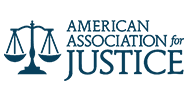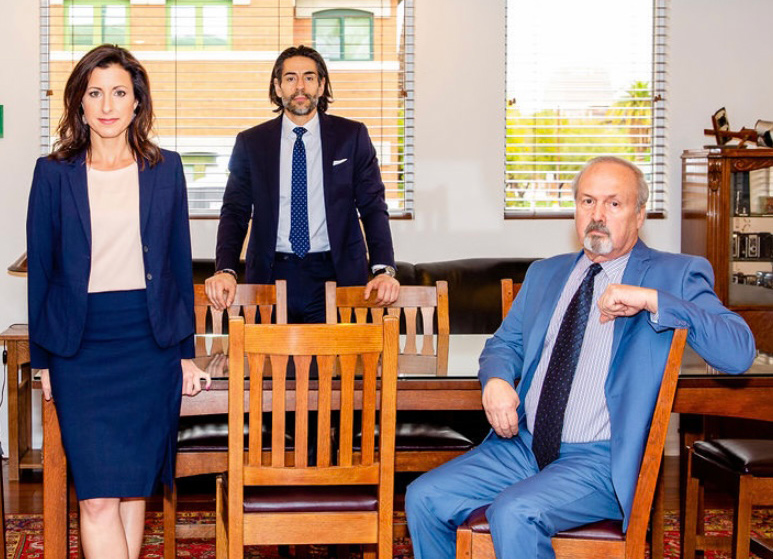Nursing Home Residents Rights
Understanding Nursing Home Residents' Rights in Arizona
At Miller Kory Rowe, we’ve spent over 20 years representing nursing home residents and their families throughout Arizona. Our litigation team has successfully prosecuted hundreds of elder abuse and neglect cases, giving us firsthand insight into how residents’ rights are violated and the devastating impact these violations have on families.
Arizona-Wide Representation
Offices in Phoenix, Tucson & Globe
AZ Board Certified Specialist*
in Personal Injury and Wrongful Death
No Cost or Fees
Unless We Win
Understanding Nursing Home Residents’ Rights in Arizona
Filing A Claim For Bedsores In Arizona?
Imagine entrusting your loved one to a nursing home, only to worry whether they’re receiving proper care and being treated with dignity. Are their needs being met? Is anyone listening when they speak?
For thousands of Arizona families, this worry is their daily reality. At Miller Kory Rowe, we’ve spent over 20 years representing nursing home residents and their families throughout Arizona. Our litigation team has successfully prosecuted hundreds of elder abuse and neglect cases, giving us firsthand insight into how residents’ rights are violated and the devastating impact these violations have on families.
This is why understanding nursing home residents’ rights is not just important—it’s essential. Knowledge is the first line of defense against abuse, neglect, and mistreatment. Arizona has specific laws designed to protect our vulnerable elderly population, supplementing federal regulations that establish baseline standards of care.
The Legal Framework Protecting Nursing Home Residents
Federal Protections: The Nursing Home Reform Act (NHRA)
The cornerstone of nursing home residents’ rights is the federal Nursing Home Reform Act of 1987. This landmark legislation was enacted in response to a nationwide study revealing widespread abuse and neglect in nursing facilities. The NHRA established a “Bill of Rights” for residents and set national standards for care quality and residents’ rights.
Under this federal framework, nursing homes that receive Medicare or Medicaid funding—which includes most facilities in Arizona—must provide services and activities to maintain the highest possible physical, mental, and psychosocial well-being of each resident. The law emphasizes that residents don’t surrender their fundamental rights when they enter a nursing home.
These rights include:
- Freedom from abuse, mistreatment, and neglect
- Freedom from physical restraints
- Privacy
- Accommodation of medical, physical, psychological, and social needs
- Participation in resident and family groups
- Treatment with dignity
- Exercise of self-determination
- Free communication
- Participation in the review of one’s care plan and to be fully informed about treatment
- Voice grievances without discrimination or reprisal
The Centers for Medicare & Medicaid Services (CMS) oversees compliance with these federal regulations, conducting inspections and imposing penalties on facilities that fail to meet standards.
Arizona-Specific Protections
Arizona enhances federal protections with state-specific laws and agencies dedicated to safeguarding our elderly population. The Arizona Department of Health Services (ADHS) licenses and regulates nursing homes throughout the state, conducting regular inspections to ensure compliance with both state and federal requirements.
Arizona Adult Protective Services (APS) plays a crucial role in investigating allegations of abuse, neglect, or exploitation. They’re empowered to intervene when necessary to protect vulnerable adults, including nursing home residents.
The Arizona Long-Term Care Ombudsman Program serves as an advocate for residents, helping to resolve complaints and ensure that residents’ rights are protected. Ombudsmen regularly visit facilities, educate residents and families about their rights, and provide confidential advocacy services at no cost.
Arizona law also requires nursing homes to prominently post residents’ rights in their facilities and provide written copies to residents upon admission. This ensures that residents and their families are informed about protections available to them under state and federal law.
Key Rights of Nursing Home Residents
Right to Dignity and Respect
At the core of nursing home residents’ rights is the fundamental right to be treated with dignity and respect, regardless of their physical or mental condition. This means staff must knock before entering a resident’s room, address residents by their preferred names, and involve residents in decisions about their care whenever possible.
Dignity violations can take many forms, from staff speaking to residents in infantilizing ways to ignoring calls for assistance or rushing through personal care procedures without regard for the resident’s comfort or privacy. These violations may seem minor in isolation but can have profound effects on a resident’s sense of self-worth and overall well-being.
For example, a staff member who continually refers to an elderly resident as “sweetie” or “honey” rather than using their name may be undermining that person’s dignity. Similarly, discussing a resident’s medical condition within earshot of other residents violates their right to privacy and respect.
Right to Quality Medical Care
Nursing home residents have the right to access necessary healthcare services, including regular physician visits, specialist care when needed, and emergency medical treatment. Facilities must provide or arrange for these services and cannot deny care based on a resident’s payment source.
Residents also maintain the right to make their own healthcare decisions, including the right to refuse treatment. They should be fully informed about their medical conditions, proposed treatments, and alternatives in language they can understand. If a resident lacks decision-making capacity, these rights transfer to their designated healthcare proxy or guardian.
Quality medical care also encompasses appropriate medication management. Residents should receive medications as prescribed, and staff should monitor for side effects and efficacy. Medication errors—such as missed doses, incorrect medications, or improper administration—can constitute neglect and may lead to serious health consequences.
Right to Be Free from Abuse and Neglect
Perhaps the most fundamental right of nursing home residents is to be free from all forms of abuse and neglect. This includes:
- Physical abuse: Hitting, pushing, improper restraint, or any form of corporal punishment
- Emotional abuse: Humiliation, threats, intimidation, or isolation
- Sexual abuse: Any non-consensual sexual contact or sexual harassment
- Financial exploitation: Theft, fraud, coercion to change financial documents, or misuse of a resident’s funds
- Neglect: Failure to provide necessary care, assistance, goods, or services
Family members should remain vigilant for signs of abuse or neglect, such as unexplained injuries, sudden behavioral changes, poor hygiene, weight loss, or expressions of fear around certain staff members. Bedsores (pressure ulcers), particularly in advanced stages, often indicate serious neglect, as they’re largely preventable with proper care and attention.
Consult with a Nursing Home Abuse Attorney
When a loved one has suffered abuse or neglect in a nursing home, an experienced attorney can help navigate the complex legal landscape and pursue justice on their behalf. An attorney specializing in nursing home abuse can:
- Evaluate the strength of your case
- Identify all potentially liable parties (which may include not just the facility but parent companies, management companies, and individual staff members)
- Gather evidence through formal discovery processes
- Consult with medical experts to establish the standard of care and how it was breached
- Calculate the full extent of damages, including physical injury, emotional distress, and reduced quality of life
- Negotiate with the facility’s insurance carriers or legal representatives
- Represent your loved one’s interests in court if a fair settlement cannot be reached
At Miller Kory Rowe, we bring unique qualifications to nursing home abuse litigation. Our team includes attorneys with specialized knowledge in elder care regulations and technical backgrounds that help us understand and explain complex medical issues. We’ve successfully advocated for hundreds of nursing home abuse victims throughout Arizona, holding negligent facilities accountable and securing the compensation our clients deserve.
Right to Personal Freedom and Autonomy
Nursing home residents don’t forfeit their independence when they enter a facility. They retain the right to make choices about their daily lives, including what to wear, when to sleep, what activities to participate in, and whom to associate with.
Residents have the right to receive visitors of their choosing at reasonable times, maintain personal possessions (within space limitations), and participate in social, religious, and community activities. Facilities should accommodate these rights to the greatest extent possible while maintaining a safe environment.
The use of physical restraints (such as bed rails, wheelchair belts, or wrist restraints) is strictly regulated and should only be employed when necessary to ensure the resident’s safety or the safety of others, and only with proper medical authorization. Chemical restraints—medications used primarily to control behavior rather than to treat medical conditions—should never be used for staff convenience.
Right to Privacy and Confidentiality
Privacy is a fundamental human need that doesn’t diminish with age. Nursing home residents have the right to privacy in their personal care, medical treatment, personal communications, and visits with family and friends.
This includes the right to send and receive mail without interference, make telephone calls in private, and meet with visitors in private spaces when possible. Medical information should be kept confidential in accordance with HIPAA regulations, and financial matters should be handled discreetly.
Right to Report Violations Without Retaliation
Fear of retaliation can silence victims of nursing home abuse or neglect. Federal and Arizona state laws explicitly prohibit nursing homes from retaliating against residents who file complaints or participate in investigations. This protection extends to family members who advocate on a resident’s behalf.
Arizona residents or their representatives can file complaints with:
- The nursing home administration (following the facility’s grievance procedure)
- The Arizona Long-Term Care Ombudsman Program
- Arizona Department of Health Services
- Arizona Adult Protective Services
Common Violations of Residents’ Rights
Understaffing and Poor Quality Care
Inadequate staffing is at the root of many nursing home violations. When facilities operate with too few caregivers or inadequately trained staff, residents suffer. Basic needs go unmet, medical conditions go unmonitored, and the risk of accidents increases significantly.
For example, a resident who needs assistance with toileting may be left waiting for extended periods, potentially leading to incontinence, skin breakdown, urinary tract infections, and loss of dignity. Similarly, residents who need help eating may receive meals that go cold while waiting for assistance, contributing to malnutrition and dehydration.
Bedsores (pressure ulcers) often develop when immobile residents aren’t repositioned regularly—a common consequence of understaffing. These painful wounds can progress rapidly, leading to infection, sepsis, and even death if not properly treated. The presence of advanced bedsores is almost always indicative of neglect.
Arizona regulations specify minimum staffing ratios, but many experts believe these minimums fall short of what’s needed to provide quality care. Families should inquire about staffing levels, particularly during evenings, nights, and weekends, when facilities often operate with reduced staff.
Financial Exploitation
Nursing home residents are particularly vulnerable to financial exploitation due to potential cognitive impairments, isolation from family members, and dependence on caregivers. This exploitation can range from petty theft of personal items to sophisticated schemes involving coerced changes to wills or power of attorney documents.
Common forms of financial abuse in nursing homes include:
- Unauthorized charges for services that weren’t provided or weren’t necessary
- Staff “borrowing” money with no intention of repayment
- Stealing cash, jewelry, or other valuables from residents’ rooms
- Forging signatures on financial documents
- Manipulating residents into making gifts or financial decisions that benefit the abuser
Families can help prevent financial exploitation by maintaining oversight of their loved one’s finances, regularly reviewing bank statements and facility bills, securing valuable items, and being wary of sudden changes in financial arrangements or new “best friends” among the staff.
Overmedication and Chemical Restraints
Some nursing homes resort to inappropriate use of psychotropic medications to manage residents with dementia or behavioral issues. These “chemical restraints” are often administered for staff convenience rather than medical necessity, effectively sedating residents to make them easier to manage.
Antipsychotics are particularly concerning, as they carry a black box warning from the FDA when used in elderly patients with dementia, citing increased risk of death. Despite this, inappropriate use of these medications persists in some facilities.
Signs of chemical restraint may include:
- Sudden onset of lethargy, confusion, or sedation
- Slurred speech or difficulty staying awake
- Decreased interest in activities previously enjoyed
- New medication regimens without clear medical justification
- Behavior that appears overmedicated (drooping head, inability to stay awake during the day)
Families should request complete information about all medications prescribed to their loved ones, including dosages, reasons for use, and potential side effects. Any sudden changes in medication, particularly the addition of psychotropic drugs, should be questioned.
What to Do If a Loved One’s Rights Are Violated
Document the Issues
If you suspect your loved one’s rights are being violated, thorough documentation is crucial. Keep a journal of observations, including dates, times, and descriptions of concerning incidents. Note the names of staff members involved and any witnesses present.
Photographic evidence can be particularly compelling, especially for physical injuries, unhygienic conditions, or evidence of neglect. Take photos that clearly show the problem, with timestamps if possible.
Request and review your loved one’s medical records regularly. These records may reveal inconsistencies in care, unexplained injuries, weight loss, or other signs of neglect that might not be immediately apparent during visits.
Speak with other visitors or residents (if appropriate) who might have witnessed concerning incidents. Their observations can corroborate your concerns and strengthen your case.
Report to Authorities
If you believe your loved one is in immediate danger, call 911. For less urgent concerns, follow these reporting steps:
- Report to facility management: Start by addressing concerns with the nursing director or administrator. Follow the facility’s formal grievance procedure, which should be provided to you upon admission.
- Contact the Long-Term Care Ombudsman: Arizona’s ombudsman program advocates for residents’ rights and can investigate complaints. They can often resolve issues informally and maintain confidentiality if requested.
- File a complaint with Arizona Department of Health Services: ADHS is responsible for licensing and regulating nursing homes and can investigate allegations of abuse, neglect, or rights violations.
- Report to Adult Protective Services: APS investigates allegations of abuse, neglect, or exploitation of vulnerable adults and can intervene when necessary.
- Contact law enforcement: Some forms of abuse (physical, sexual, financial) are crimes and should be reported to local police.
The National Center on Elder Abuse (NCEA) also provides valuable resources and guidance for those dealing with suspected nursing home abuse.
Keep records of all reports filed, including copies of written complaints, names of officials you spoke with, dates of contact, and any response received.
Bottom Line
Understanding and protecting nursing home residents’ rights is not just a legal matter—it’s a moral imperative. Our elderly loved ones deserve to live with dignity, respect, and proper care, especially when they’re at their most vulnerable.
By familiarizing yourself with these rights, staying vigilant for signs of abuse or neglect, and knowing how to respond if violations occur, you become a powerful advocate for your loved one and for all nursing home residents. Remember that speaking up about suspected abuse or neglect may not only protect your family member but could prevent harm to other vulnerable residents as well.
If you believe your loved one’s rights have been violated in an Arizona nursing home, we encourage you to reach out for a free, confidential consultation with our experienced nursing home abuse attorneys. At Miller Kory Rowe, we understand the emotional and legal complexities of these cases and are committed to helping families find justice and peace of mind.
What to Expect When Working With Us

We understand that pursuing a claim can feel daunting. Our team will guide you through each step of the process.
1. Initial Consultation
We listen closely to your concerns, explain your rights, and make sure the resident’s immediate safety is addressed from the start. This consultation is free, and there’s no obligation to proceed.
2. Investigation Phase
If we take your case, we’ll gather all necessary medical records and consult with expert witnesses to build a strong foundation for your claim.
3. Claim Development
We’ll calculate the full extent of your damages and prepare comprehensive settlement demands or legal filings.
4. Negotiation or Litigation
We’ll pursue fair compensation through negotiation when possible, but we’re always prepared to take your case to trial if necessary.







Real Client Testimonials
Our dedication to achieving successful outcomes for our clients is reflected in the authentic stories they share in our testimonials.
Many of these families came to us after discovering neglect in a nursing home or care facility.
“Teri Rowe and the team at MKR are highly recommended. My family and I went to Teri under the worst of circumstances and she was always kind, comforting, and helpful. Our case was complicated, sad, confusing and frustrating. She managed everything wonderfully. Our family lawyer referred us to Teri because Teri has a reputation for being the best. She definitely lives up to her reputation.”
— Michael Stenoien
“My sisters and I couldn’t have made a better choice by choosing Miller Kory Rowe to represent us. From day one to the end, their empathy, their professionalism and their confidence in our case never wavered. We were given the faith and they kept it. Their approach was completely professional but their concern for our case was equally personal. They took into account every little detail. They valued for us, our family values and ensured justice was done. We now have complete closure that this lawsuit is behind us, we can move forward knowing that we got some measure of justice for the harm done to our mother. Thank you so much Liz, Gabe and Stephanie.”
— Sherrie Dudek
“From our initial consultation to our final settlement. Miller, Kory and Rowe was with us every step of the way. Gabe and team kept us abreast of any updates on the case in a timely fashion and were always, often within minutes of an email, to walk us through what was happening in our case or clarify any questions we may have.
MKR’s compassion and thoughtfulness was genuine and was able to ease our minds in what was a difficult time with the passing of our mom. Gabe’s experience with these cases was very evident in our interactions and we had the utmost confidence in his representation. I would highly recommend MKR if you are ever in need of an attorney.”
— Joseph Shown
At Miller Kory Rowe, we are not afraid to take cases to trial. We are Arizona litigators with deep experience handling serious injury and wrongful death claims for families across the state.
Every case is prepared with the courtroom in mind. That level of preparation strengthens our strategy, builds trust with our clients, and puts pressure on the defense. We work with respected experts, craft compelling exhibits, and uncover the details that help juries understand the truth.
Whether your case involves medical negligence, elder abuse, or another form of life-changing harm, our focus stays the same: clear answers and meaningful results.
Request a
Free & Confidential
Consultation
Take the First Step Toward Compensation For You or a Loved One


